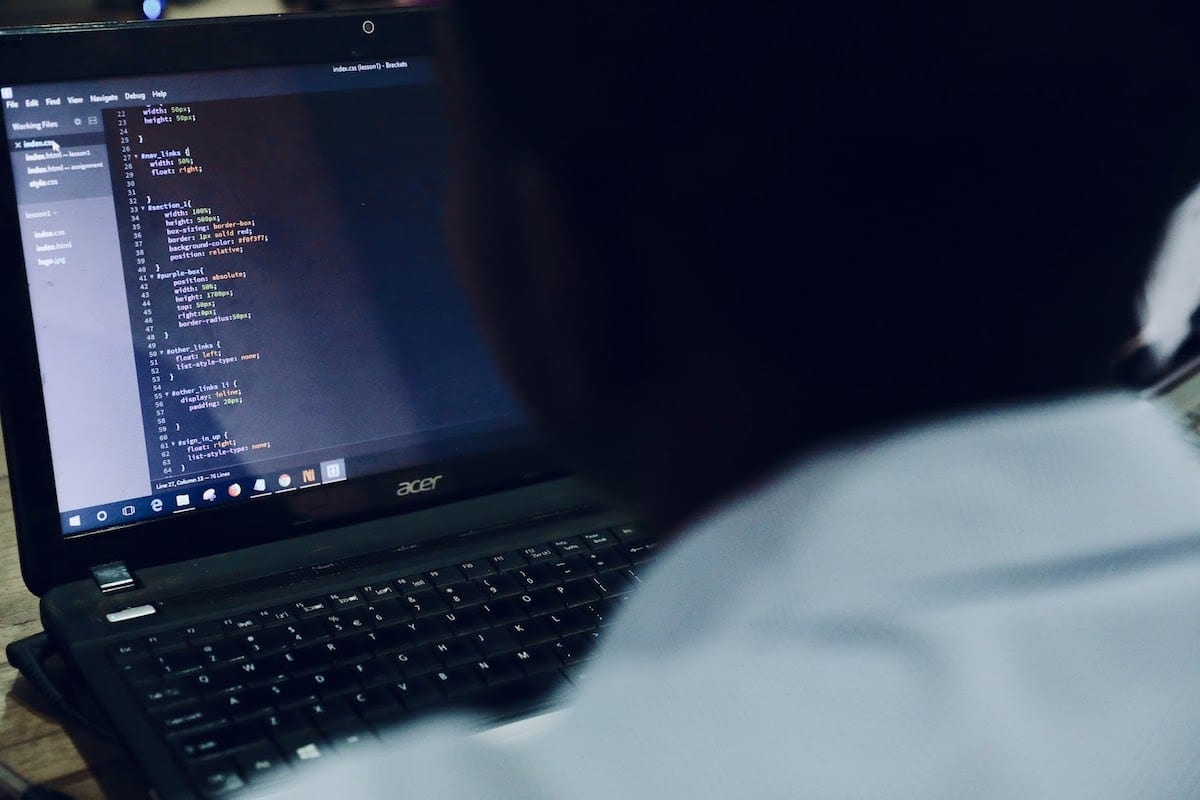If you’ve considered learning how to code, you’ve probably heard that it isn’t easy. The truth about coding is a little more complicated than that—some of it is difficult, but it’s not all the same. So, is it hard to learn to code? Yes and no. Coding comes naturally to some people, but everybody runs into bugs and challenges that can cause frustration. While it’s almost guaranteed that you’ll want to pull your hair out at some point while learning to code, you can get started with some easier languages that can help ease you into more challenging tasks. In this article, we’ll cover the most challenging parts of coding and introduce some simple starter coding languages.
Coding refers to using any one of over a dozen computer languages to create something. In a nutshell, coding is merely giving a computer written instructions for how to execute a task. Without programming, computers wouldn’t do anything at all. Learning a coding language (or many) is a lot like learning a natural spoken language. The more you learn, the easier it gets to pick up another. Imagine learning Italian and Spanish—they’re completely different languages that share enough similarities to transition between them with relative ease. Of course, that means some coding languages are akin to learning Russian and English, so they’ll take more time to master. In short, all it takes to master a coding language is time and practice. It’ll be challenging, but anybody can do it with some patience.

Why People Think it’s Hard to Learn Coding
Like we mentioned earlier, an English-speaker would probably find it hard to read signs written in Hebrew. When we see pictures of coding on the internet, it seems like an incomprehensible mass of characters and colors with no logical flow. In reality, it’s no different than reading a book in a foreign language. Patterns are there, but it takes some time to recognize them. Once you do, it’s not ‘hard’ anymore. If you learned how to read and write in your native language, you could do it again.
Coding isn’t exactly like reading or writing in a spoken language, though. Each programming language has different characteristics and tolerances for style. For example, one language may be pickier about command spacing than another. As a result, errors often occur, and it takes a keen eye to spot why. This process is called ‘debugging,’ and it’s a significant point of frustration for many programmers. Computer instructions written in code must be precise, and it requires a good understanding of the language to know exactly what to tell a machine to do. That’s not to say there’s no room for creativity and innovation; it just takes attention to detail to do it right.

Why Coding is Worth the Challenge
Coding is an enriching activity for many people. Knowing how to code leads to many lucrative job opportunities, and it gives you a chance to shape the modern world. Coders turn their ideas into real, functioning programs from their computers, and you can too. Learning to code can sharpen your problem-solving skills while opening doors in your life that you could never imagine before. If you’re a creative or inventive person, there’s no better time to get into coding. With the right skills, you can turn your best ideas into reality. As a coder, your career options in the tech industry are extensive. You can use your skills to land a job in game design, software engineering, and web development—there’s a specialized coding career out there for everyone.
Easiest Coding Languages for Beginners
Most programmers agree that HTML and JavaScript are the easiest coding languages to learn. These ancient web-development languages are still widely used in the industry, but their simple processes are easy to wrap your head around as a beginner. HTML stands for Hypertext Markup Language, and it’s used to format online documents. Features like bold and italic text fall into the domain of HTML, while JavaScript works with more complicated interactive elements, like buttons and menus. Developers use the two languages together for basic website building operations. Over time, you can branch off into other languages, such as Python, which offers a much broader array of uses.
How to Learn to Code (Like the Professionals)
As your coding experience advances, you’ll need to pick up more complicated languages. While it’s possible to learn the basics on your own, it’s best to have professional guidance. When you’re ready to begin, take Career Karma’s 21-day challenge. Career Karma will teach you how to get started with the best professional coding programs in the country. Coding bootcamps, such as App Academy and Lambda School, train ordinary people from all backgrounds and prepare them for lucrative careers in the tech industry. If you’re prepared to take the next steps and join a community of motivated newbie coders, check out what Career Karma has to offer.
About us: Career Karma is a platform designed to help job seekers find, research, and connect with job training programs to advance their careers. Learn about the CK publication.



